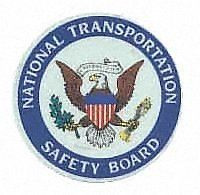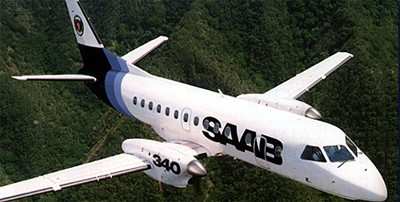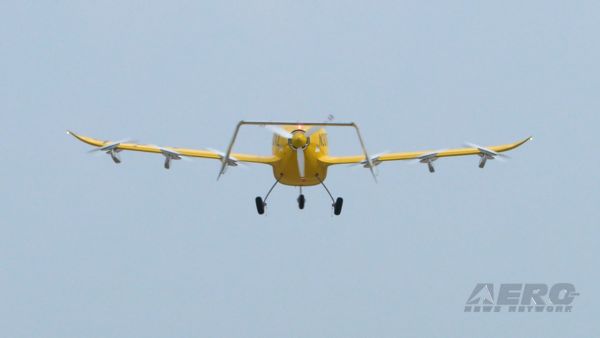Tue, Jul 11, 2006
January Saab 340 Incident Leads To Four New
Recommendations
 In response to an
incident earlier this year in which the pilots of an American Eagle
Saab 340 turboprop lost control of their airplane after
encountering icing conditions over California's central coast, the
NTSB on Monday issued four new recommendations for planes operating
in icing conditions:
In response to an
incident earlier this year in which the pilots of an American Eagle
Saab 340 turboprop lost control of their airplane after
encountering icing conditions over California's central coast, the
NTSB on Monday issued four new recommendations for planes operating
in icing conditions:
- Require all operators of Saab SF340 series airplanes to
instruct pilots to maintain a minimum operating airspeed of 1.45x
Vs during icing encounters and before entering known or forecast
icing conditions and to exit icing conditions as soon as
performance degradations prevent the airplane from maintaining
1.45xVs. (A-06-48) Urgent
- Require the installation of modified stall protection logic in
Saab SF340 series airplanes certified for flight into known icing
conditions. (A-06-49)
- Require the installation of an icing detection system on Saab
SF340 series airplanes. (A-06-50)
- Require all operators of turbopropeller-driven airplanes to
instruct pilots, except during intermittent periods of high
workload, to disengage the autopilot and fly the airplane manually
when operating in icing conditions. (A-06-51)
In addition to the recommendations, the NTSB also called for a
panel to be convened consisting of airplane design, aviation
operations, and aviation human factors specialists, including
representatives from the National Aeronautics and Space
Administration, to determine whether a requirement for the
installation of low-airspeed alert systems in airplanes engaged in
commercial operations under 14 Code of Federal Regulations Parts
121 and 135 would be feasible, and submit a report of the panel's
findings. (A-03-53)
If the panel requested in Safety Recommendation A-03-53
determines that a requirement for the installation of low-airspeed
alert systems in airplanes, the NTSB would then establish
requirements for low-airspeed alert systems, based on the findings
of the panel.
According to the NTSB's preliminary report on the incident last
January, the pilots of the Saab 340, on a flight from San Luis
Obispo to Los Angeles encountered icing conditions during the en
route climb at about 11,500 feet MSL. The plane then banked hard to
the left and departed controlled flight, descending to about 6,500
feet MSL before the pilots regained control about 50 seconds
later.

The crew then continued to their scheduled destination of Los
Angeles International Airport (LAX), and landed without further
incident.
More News
States That Current Process is Damaging National Aerospace Development US Senator Jerry Morgan is pushing the FAA to speed up the process for rocket launch licensing. He argues tha>[...]
From 2015 (YouTube Edition): Model Aviator Aims For Full-Scale Career While at the 2015 Indoor Electric RC Festival, referred to as eFest, ANN CEO and Editor-In-Chief, Jim Campbell>[...]
Dave Juwel's Aviation Marketing Stories ITBOA BNITBOB ... what does that mean? It's not gibberish, it's a lengthy acronym for "In The Business Of Aviation ... But Not In The Busine>[...]
Aero Linx: Cardinal Flyers Online The Cardinal Flyers Online Web site was created and is maintained by me, Keith Peterson. My wife Debbie and I have owned a 1976 RG since 1985. Wit>[...]
Clearance Void If Not Off By (Time) Used by ATC to advise an aircraft that the departure release is automatically canceled if takeoff is not made prior to a specified time. The exp>[...]
 Senator Pushes FAA to Accelerate Rocket Launch Licensing
Senator Pushes FAA to Accelerate Rocket Launch Licensing Classic Aero-TV: RJ Gritter - Part of Aviations Bright New Future
Classic Aero-TV: RJ Gritter - Part of Aviations Bright New Future Aero-FAQ: Dave Juwel's Aviation Marketing Stories -- ITBOA BNITBOB
Aero-FAQ: Dave Juwel's Aviation Marketing Stories -- ITBOA BNITBOB ANN's Daily Aero-Linx (10.27.24)
ANN's Daily Aero-Linx (10.27.24) ANN's Daily Aero-Term (10.27.24): Clearance Void If Not Off By (Time)
ANN's Daily Aero-Term (10.27.24): Clearance Void If Not Off By (Time)




